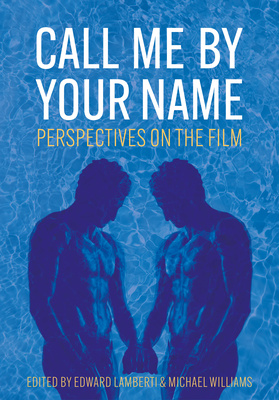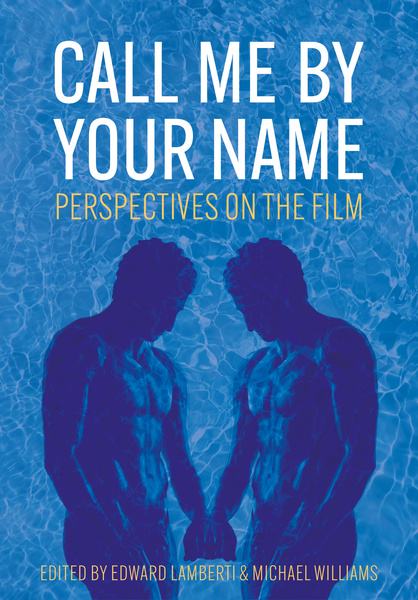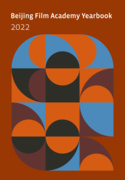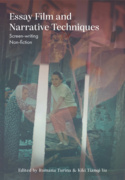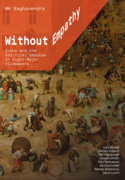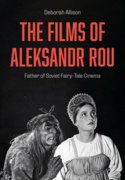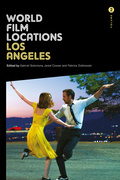Call Me by Your Name (Book)
Perspectives on the Film
Enthusiastically received since its 2017 release, Luca Guadagnino's film Call Me by Your Name tells the love story between seventeen-year-old Elio and graduate student Oliver. This edited collection explores how the film speaks powerfully to questions of contemporary sexual identity and romance. 35 b&w illus.
Edition
Adapted by James Ivory from André Aciman’s novel and directed by Luca Guadagnino, the film Call Me by Your Name has been passionately received among audiences and critics ever since its 2017 release.
A love story between seventeen-year-old Elio (Timothée Chalamet) and graduate student Oliver (Armie Hammer) and set in 1983 ‘Somewhere in northern Italy’, Call Me by Your Name presents a gay relationship in a romantic idyll seemingly untroubled by outside pressures, prejudices or tragedy. While this means it offers audiences welcome opportunities to swoon in front of an LGBTQ+ romance that equals classic heterosexual romances onscreen, its relevance or political significance today may not be immediately apparent. And yet the film is abundantly infused with narrative, thematic and stylistic elements that can be interpreted as speaking powerfully to contemporary audiences on questions of sexual identity.
This edited collection addresses how the film helps inform our understanding of contemporary sexual identity and romance. How does this love story explore wider tensions that exist between the specific and the general, between the open and the hidden, and between the past and the present? The contributors to the collection explore these questions in stimulating and contemplative manners.
Edward Lamberti is the author of Performing Ethics through Film Style: Levinas with the Dardenne Brothers, Barbet Schroeder and Paul Schrader (Edinburgh University Press, 2019) and the editor of Behind the Scenes at the BBFC: Film Classification from the Silver Screen to the Digital Age (BFI/Palgrave, 2012; longlisted for the 2013 Kraszna-Krausz Book Award for Best Moving Image Book). He has a Ph.D. in Film Studies Research from King’s College London and he works at the BBFC.
Michael Williams is Professor in Film at the University of Southampton. He is author of Film Stardom and the Ancient Past: Idols, Artefacts and Epics (Palgrave Macmillan, 2018) and Film Stardom, Myth and Classicism: The Rise of the Hollywood Gods (2013). He has widely published on stardom and with a particular focus on queer imagery and reception, and is also author of Ivor Novello: Screen Idol (BFI, 2003) and co-editor of British Silent Cinema and the Great War (Palgrave Macmillan, 2011).
List of Figures
List of Tables
Acknowledgements
Introduction: Somewhere in Northern Italy – Edward Lamberti and Michael Williams
Part I: Style
- Temporary Paradise: Queer Space, Time and Pastoral Visions in Call Me by Your Name – Adam Vaughan
- ‘But You Know, There Have Been Queer Characters from the Very First Film’: Call Me by Your Name and the Long Shadow of James Ivory – Claire Monk
- ‘Is It Better to Speak or Die?’: Adaptation and Elio’s Interiority – Stuart Richards
- Music as Narrator in Call Me by Your Name – Kingsley Marshall
- Sex Sounds: On Aural Explicitness in Call Me by Your Name – Sarah Artt
- Call Me by Your Name and the Ethics of Distance – Edward Lamberti
Part II: Themes
- Call Me by Your Name, Chrononormativity and the (Queer?) Future of Italian Teen Film – Daniel Paul
- Plato to Elio: Ancient and Modern Sexualities in Call Me by Your Name – Nikolai Endres
- ‘Daring You to Desire Them’: Digital Classicism, Star Bodies and Call Me by Your Name – Michael Williams
- Call Me Bi Any Other Name: Anal Monstration, Formal Bisexualization, Gay Indigestion – Jacob Engelberg
Part III: Reception
- Call Me by Your Name and Film Festivals – Ruby Cheung
- Tell Tim Chalamet to Tweet at Me: Timothée Chalamet’s Social Media Silence, Presence and Performed (B)romance with Armie Hammer – Francesca Sobande
- The Sexiest Risk-Taker? Armie Hammer, White Masculinity and Call Me by Your Name – Jonathan A. Cannon
- ‘Finally, a Gay Movie without a Bad Vibe’: Queer Nostalgia, Affection and Gender Identity in Call Me by Your Name – Vinicius Ferreira, Victor Schlude and Gêsa Cavalcanti
Notes on Contributors
Index

